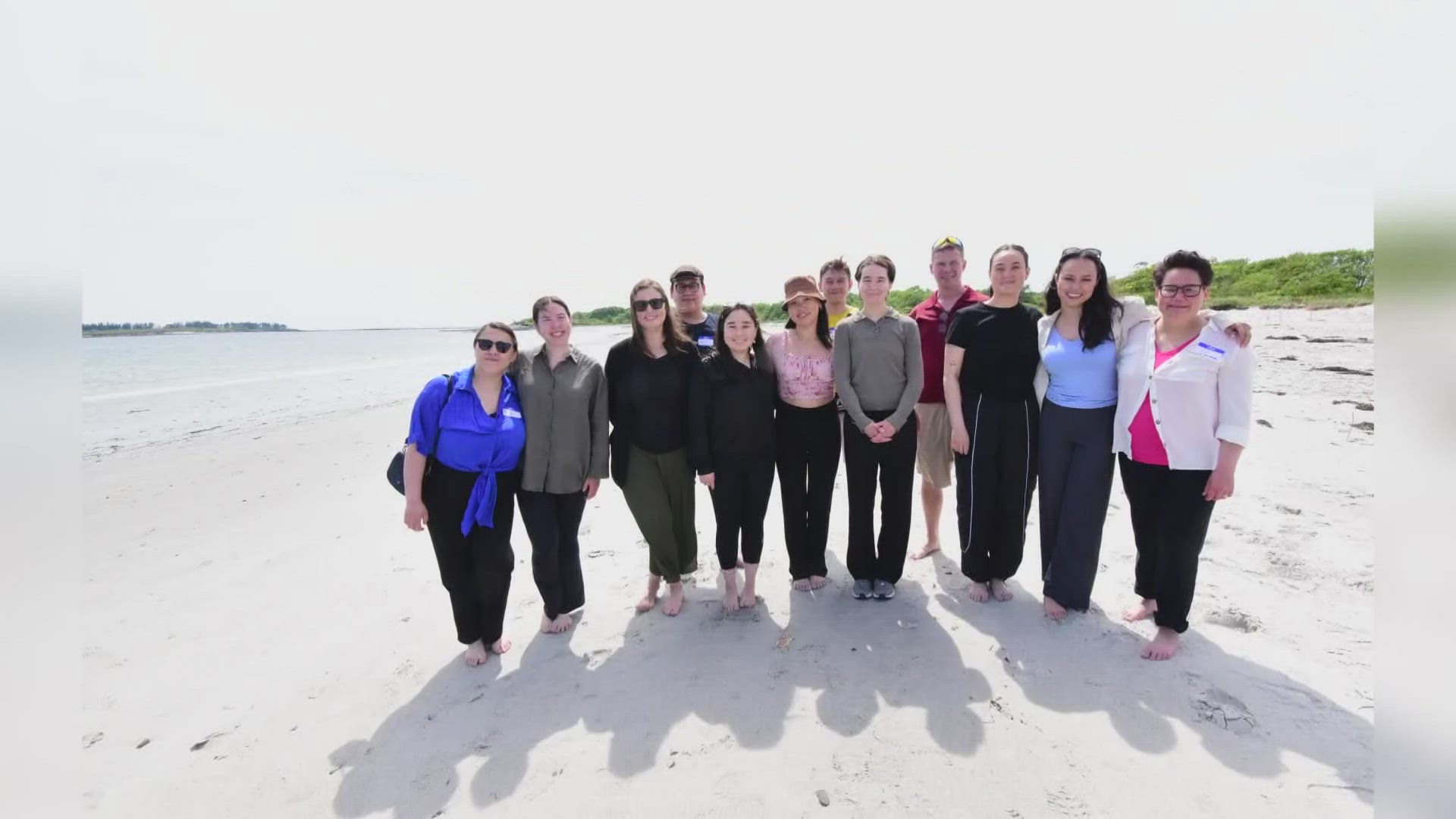PORTLAND, Maine — Portland is no stranger to visitors and immigrants from across the world.
Above State Street, which cuts through the city's spacious Deering Oaks Park, city staff welcomed July by hanging a row of flags from scores of nations as a welcome to the bustling summer traffic coming off Interstate 295.
On an unseasonably warm June morning, a dozen patrons perused a biweekly farmers market in the park, speaking a language rarely overheard around those parts.
Ten students from Greenland, who all happen to be Inuit, and their teachers from Campus Kujalleq were on assignment in the middle of a two-month stay through the end of July. The postsecondary hospitality school trains young minds pursuing career across a multitude of public-facing industries.
Despite the massive arctic nation housing a population (57,000) smaller than that of Portland (68,000), Greenland is set to open its first of three new international airports in November.
Thus, it's an education poised to turn results.
Back in 2020, the U.S. and Greenland formed the Arctic Education Alliance to offer cultural exchanges in tourism, fisheries, and natural resource management. After four years of planning, the first group of Greenlandic students arrived in Maine at the start of June, living and taking classes at the University of Southern Maine, while planning for internships in July.
The field trip to the farmers market was an immersion assignment:
- Spread out and strike up conversation with the local vendors. (The group's English was more than passable.)
- Snap a photo of some wares
- Craft a gripping Instagram post about the products
That month, the class had already visited restaurants, producers, and even experienced the lobster industry from trap to table in one day.
Aaju Simonson helped form the education alliance between the two nations and traveled with the students to Maine.
"It’s really good for the students to see how you do it here," Simonson said. "Because, in Greenland, we’re getting more and more American tourists, so this is very important."
We walked around the market with a student named Ella, who returned from a stand at the market where a local farmer was selling fresh strawberries. It's a crop, she explained, that does not grow naturally in her home country. Every strawberry she had ever eaten to that point had been imported.
With tourism expected to jump back home, Ella didn't simply plan to work in an industry that captures those dollars, she planned to lead it.
"I want to own my own company in tourism," she said confidently, while admitting she had mixed feelings about the Yankee invasion.
"It's exciting, but I think it's going really fast, too," she explained.
All visiting students also happened to be indigenous, and their roots were being highlighted by the program. The two schools already published an award-winning cookbook in 2023 using traditional recipes. And, while in Maine, they planned to spend time with Wabanaki tribes.
By July, they began internships not only in Portland, but in small towns across Maine, while exploring for themselves all Vacationland had to offer during the picture-perfect summer season.

